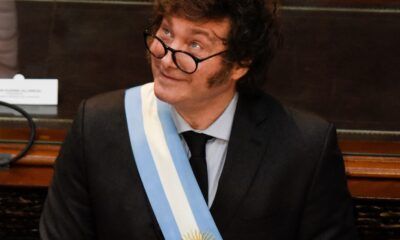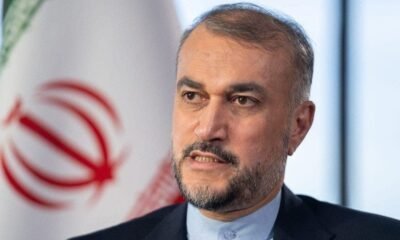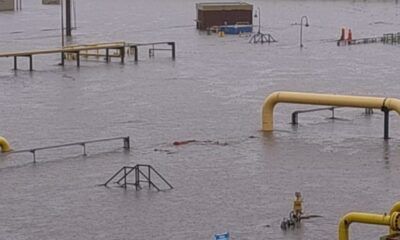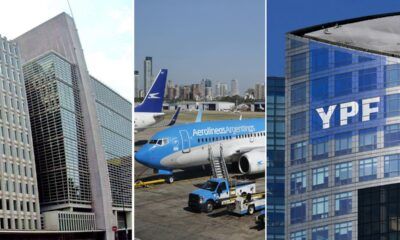INTERNACIONAL
Transitional council to select new Haitian prime minister is formed

- A transitional council tasked with selecting Haiti’s next prime minister was formed Friday, following several weeks of organization.
- The council was conceived of after Prime Minister Ariel Henry was stonewalled out of his own country by surging gang violence and anti-government protests earlier this year.
- Haiti has been plagued by rampant gang activity and political unrest since the 2021 assassination of Henry’s predecessor, President Jovenel Moïse.
A transitional council tasked with choosing Haiti’s next prime minister and Cabinet was established Friday in a move supporters hope will help quell turmoil in the troubled Caribbean country where most of the capital remains under the grip of criminal gangs.
The formation of the council, announced in a decree published Friday in a Haitian government gazette, was expected to trigger the resignation of Prime Minister Ariel Henry, who promised to step down once the council was created. Henry did not immediately comment.
Those awarded a seat on the council are Petit Desalin, a party led by former senator and presidential candidate Jean-Charles Moïse; EDE/RED, a party led by former Prime Minister Claude Joseph; the Montana Accord, a group of civil society leaders, political parties and others; Fanmi Lavalas, the party of former President Jean-Bertrand Aristide; the Jan. 30 Collective, which represents parties including that of former President Michel Martelly; and the private sector.
FOOD AID ARRIVES IN HAITI AFTER POLICE RECOVER HIJACKED CARGO SHIP
The two non-voting seats are represented by someone from Haiti’s civil society and its religious sector.
The United Nations Integrated Office in Haiti posted on X that it would continue to closely follow the political process as it called for international support for Haiti’s National Police, saying it is «essential to restore security and the rule of law.»
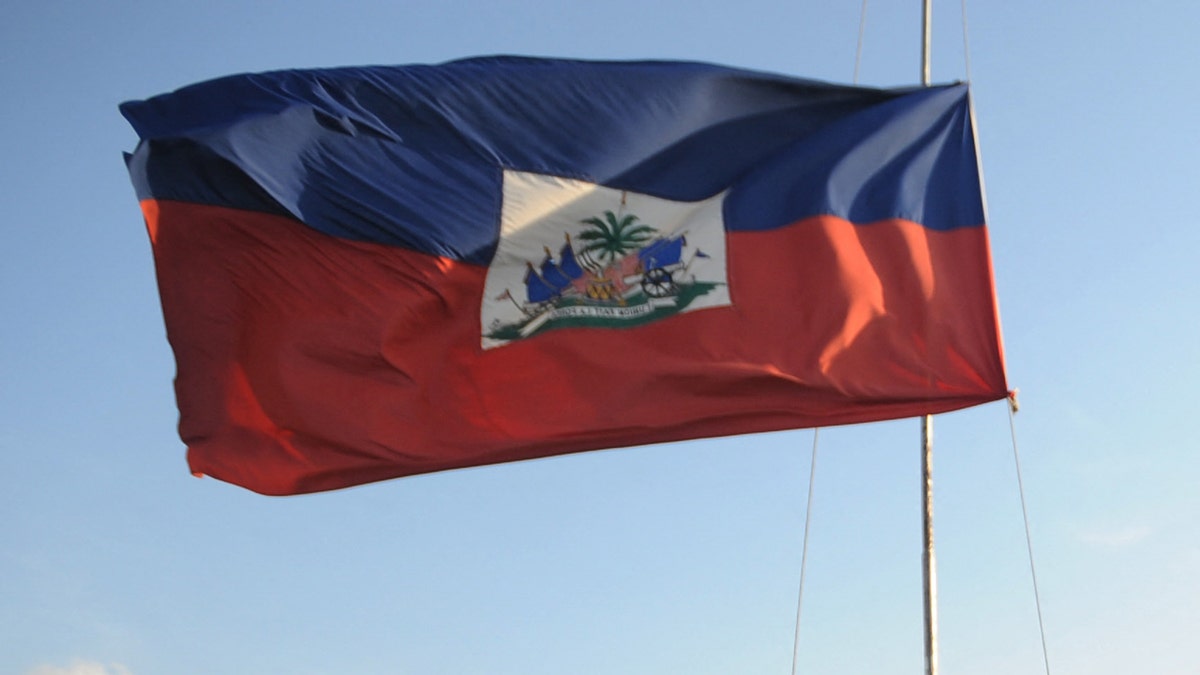
The Haitian flag is hoisted against a clear sky at the site of the presidential palace, Port-au-Prince, Haiti, April 19, 2011. (Photo by THONY BELIZAIRE/AFP via Getty Images)
«We reaffirm our commitment to supporting the country’s institutions in their efforts to restore democratic institutions,» María Isabel Salvador, the U.N. special envoy for Haiti, said in a statement.
The council’s creation comes exactly a month after Caribbean leaders announced plans to help form the nine-member panel, with seven members awarded voting powers.
Friday’s development was cheered by those who believe the council could help steer Haiti in a new direction and help quell widespread gang violence that has paralyzed swaths of the capital of Port-au-Prince for more than a month.
More than 1,550 people have been killed across Haiti and more than 820 injured from January to March 22, according to the U.N.
While gangs have long operated throughout Haiti, gunmen organized large-scale attacks starting Feb. 29. They burned police stations, opened fire on the main international airport that remains closed and raided the country’s two biggest prisons, freeing more than 4,000 inmates.
The attacks were meant to prevent the return of Henry to Haiti. At the time, he was in Kenya pushing for the U.N.-backed deployment of a police force from the East African country. He remains locked out of Haiti.
CLICK HERE TO GET THE FOX NEWS APP
While the violence has somewhat subsided, gangs are still launching attacks throughout Port-au-Prince, especially in the downtown area, where they have seized control of Haiti’s biggest public hospital.
INTERNACIONAL
Romania blocks frontrunner from postponed presidential race

Romania’s central election authority has banned Calin Georgescu, a populist candidate and frontrunner, from running in May’s presidential election re-run.
«Europe is now a dictatorship, Romania is under tyranny!» Georgescu said in a post on X, following the decision. «I have one message left! If democracy in Romania falls, the entire democratic world will fall!»
Trump’s administration has taken an interest in Romania’s presidential election since it was canceled in May because of Russian collusion allegations in Georgescu’s favor.
SpaceX CEO and DOGE leader Elon Musk chimed in and shared his reaction to the decision.
ROMANIAN FAR-RIGHT PRESIDENTIAL FRONTRUNNER TAKEN INTO CUSTODY AFTER JD VANCE’S REBUKE OF EUROPEAN ELECTIONS
Calin Georgescu, the winner of Romania’s first round of presidential election, annulled by the Constitutional Court, uses crutches walking between supporters gathered for a protest outside the Romanian parliament in Bucharest, Romania, Saturday, Feb. 22, 2025. (AP Photo/Alexandru Dobre, File)
«This is crazy,» Musk wrote on X.
Kari Lake, Trump administration senior advisor for the US agency for global media, also reacted and compared what is happening in Romania to what «they tried with Trump here in America.»
«Do you love your country & want to put it first?» Lake posted on X. «Then, the Globalists want you removed from the ballot & silenced. They tried it with Trump here in America. They did it to Bolsanaro in Brazil. Now, they’re doing it to Georgescu in Romania. The people should dictate their country’s future. Not the international order & their captured court.»
Georgescu, who won the first round of Romania’s canceled presidential election last year, was taken into custody for questioning by the country’s top prosecutors back in February.
ROMANIA ANNULS FIRST ROUND OF PRESIDENTIAL VOTE WON BY FAR-RIGHT CANDIDATE
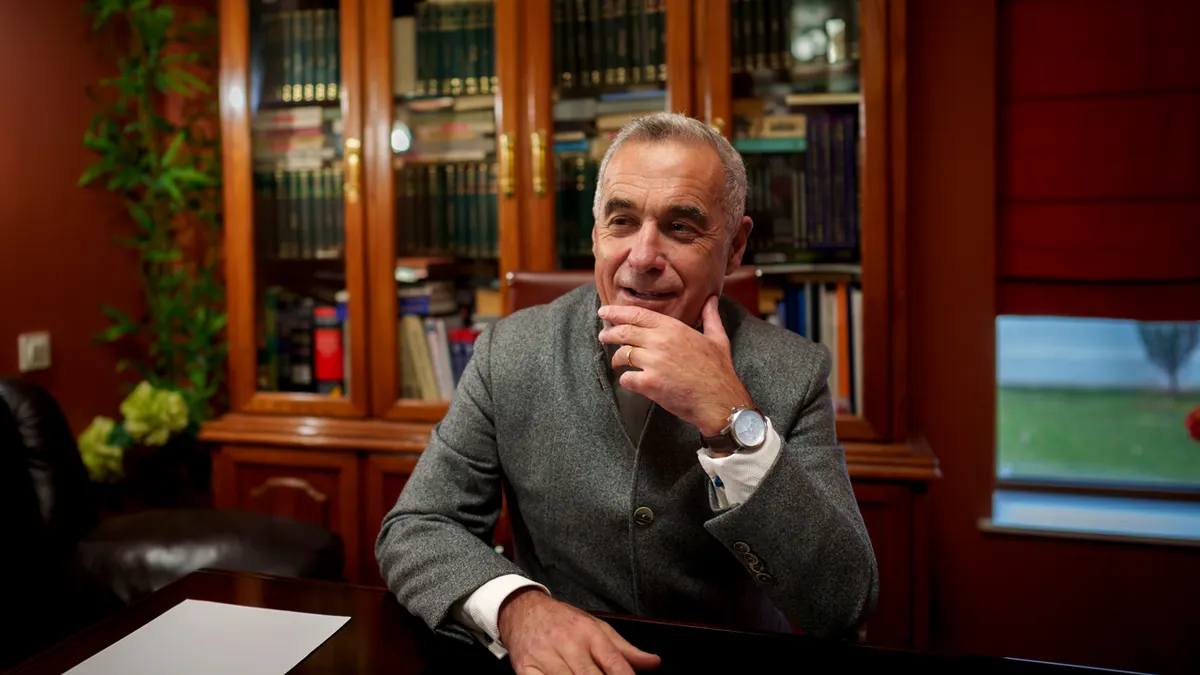
Calin Georgescu, the independent candidate for presidency who won the first round of presidential elections, speaks after an interview with the Associated Press in Izvorani, Romania, Wednesday, Dec. 4, 2024. (AP Photo/Vadim Ghirda)
Romania’s Constitutional Court made the unprecedented move to annul the election two days ahead of the Dec. 8 runoff after Georgescu’s first-round win. He had polled in single digits and declared zero campaign spending, according to The Associated Press. Allegations of Russian interference and electoral violations quickly emerged. After the election cancelation, prosecutors launched an investigation into alleged campaign funding fraud, as well as alleged antisemitism and hate speech.
The Trump administration has criticized Romania for canceling last year’s presidential election, with Vice President JD Vance alleging that the court’s ruling was based on «flimsy suspicions» and «enormous pressure» from Romania’s neighbors.
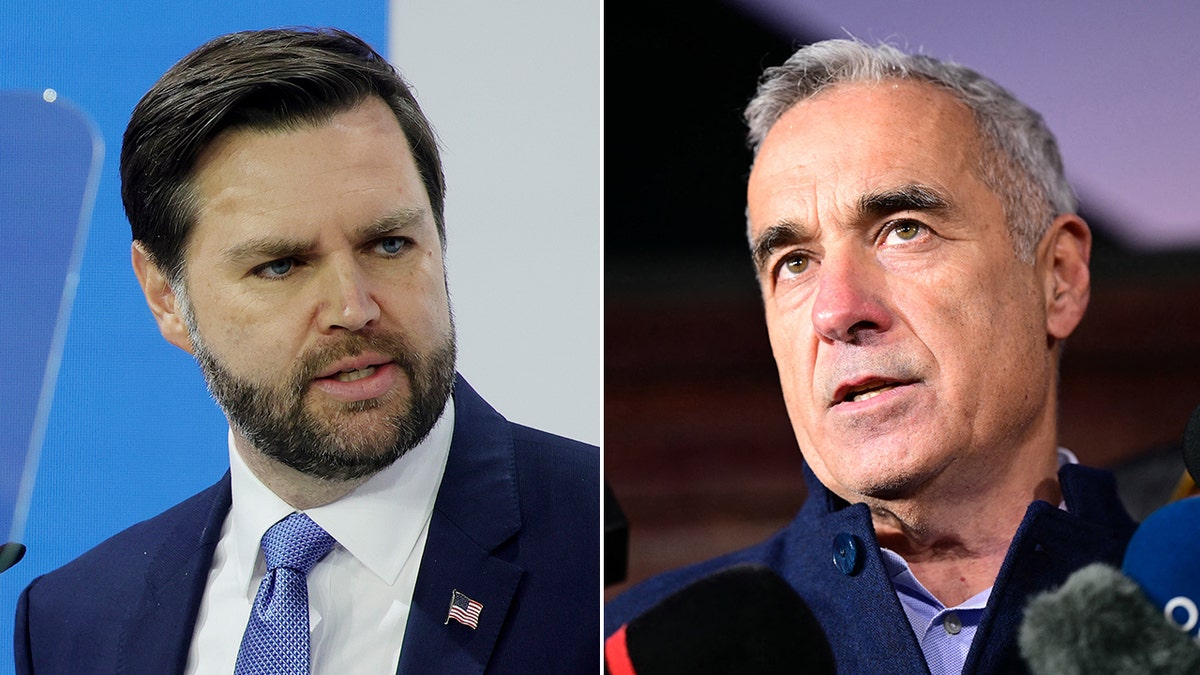
JD Vance and Romania presidential frontrunner Georgescu. (Getty Images)
Vance said in December, «Romania straight up canceled the results of a presidential election based on the flimsy suspicions of an intelligence agency and enormous pressure from its continental neighbors.»
He also warned European leaders that they cannot win a «democratic mandate» by «censoring your opponents or putting them in jail,» nor by «disregarding your basic electorate on questions like who gets to be a part of our shared society.»
«To many of us on the other side of the Atlantic, it looks more and more like old, entrenched interests hiding behind ugly Soviet-era words like misinformation and disinformation, who simply don’t like the idea that somebody with an alternative viewpoint might express a different opinion or, God forbid, vote a different way, or even worse, win an election,» Vance said.
CLICK HERE TO GET THE FOX NEWS APP
Georgescu, a staunch critic of NATO and Western support for Ukraine, has sparked controversy in the past for describing Romanian fascist and nationalist leaders from the 1930s and 1940s as national heroes, according to The AP.
He has also praised Russian President Vladimir Putin in the past as «a man who loves his country,» and has called Ukraine «an invented state.»
Fox News Digital’s Danielle Wallace, Reuters and The Associated Press contributed to this report.
Stepheny Price is a writer for Fox News Digital and Fox Business. She covers topics including missing persons, homicides, national crime cases, illegal immigration, and more. Story tips and ideas can be sent to stepheny.price@fox.com
INTERNACIONAL
Pope Francis now eating solid foods, showing ‘slight gradual improvements,’ Vatican says

Pope Francis continued his therapy and prescribed diet, which now includes eating solid foods, the Vatican said in an update on Sunday.
The Vatican said he did respiratory and motor physiotherapy and his condition «appears stable, with slight gradual improvements.»
«However, the overall situation remains complex, prompting doctors to maintain a guarded prognosis,» the Vatican also warned in its update.
Earlier on Sunday, the Vatican said the pope was responding well to treatment and had shown a «gradual, mild improvement» in recent days as he remains in the hospital recovering from double pneumonia.
POPE FRANCIS SHOWS ‘SLIGHT IMPROVEMENT’ DURING FOURTH WEEK IN HOSPITAL, VATICAN SAYS
Pope Francis waves to believers as he leaves the Cercle Cite after a meeting Luxembourg’s Prime Minister during a four-day apostolic journey in Luxembourg and Belgium, in Luxembourg City on September 26, 2024. (Simon Wohlfahrt/AFP/Getty)
The night was quiet; the Pope is resting,» the Vatican said in its earlier statement.
Francis, 88, was admitted to Rome’s Gemelli Hospital on Feb. 14 after a week-long bout of bronchitis worsened. Doctors first diagnosed the complex viral, bacterial and fungal respiratory tract infection and subsequently the onset of pneumonia in both lungs.
This is the fourth Sunday in a row that the pope will not appear for his weekly noon blessing, but the Vatican plans to distribute the message he would have delivered.
The pope’s condition has remained stable, as he has had no fever and good oxygen levels in his blood for several days, doctors said. The doctors said that his stability «as a consequence testifies to a good response to therapy.»
This marks the first time doctors have reported that Francis, who has chronic lung disease and had part of one lung removed when he was younger, was responding well to the prescribed therapies since he was admitted to the hospital more than three weeks ago.
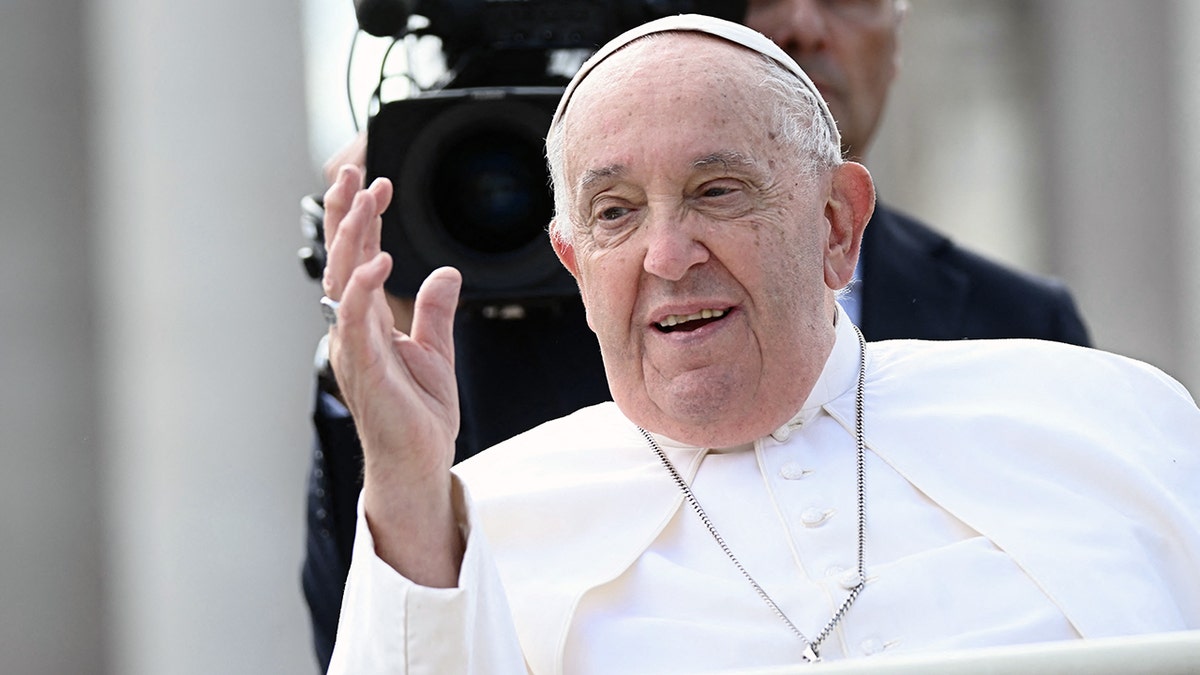
Pope Francis waves from his popemobile after the weekly Angelus prayers, at Saint Peter’s Square in the Vatican on October 20, 2024. (Filippo Monteforte/AFP/Getty)
Despite Francis’ absence, the Vatican’s daily operations continued alongside celebrations of its Holy Year, the once-every-quarter-century Jubilee that brings pilgrims from around the world to Rome. The Holy Year is celebrating volunteers this weekend, and many are extending their pilgrimage to pray for Francis outside the hospital.
POPE FRANCIS CONTINUES TO REST IN HOSPITAL AS VATICAN’S HOLY YEAR PROCEEDS WITHOUT HIM
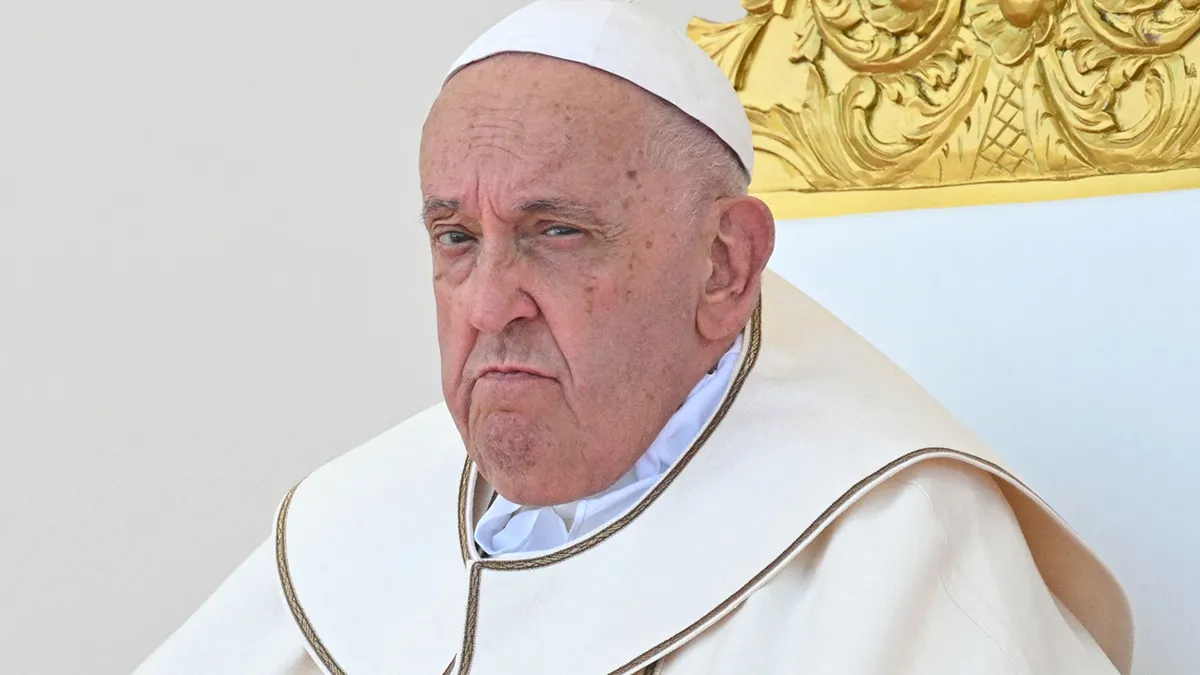
Pope Francis attends a mass at the Esplanade of Tasitolu in Dili, East Timor, on September 10, 2024. (Tiziana Fabi/Pool/AFP/Getty)
CLICK HERE TO GET THE FOX NEWS APP
Canadian Cardinal Michael Czerny will preside over the Holy Year Mass on Sunday for the volunteers.
The pope has been using high flows of supplemental oxygen to help him breathe during the day and a noninvasive mechanical ventilation mask at night.
The Associated Press contributed to this report.
INTERNACIONAL
Mark Carney wins Liberal Party nomination to replace Trudeau as Canada’s next PM
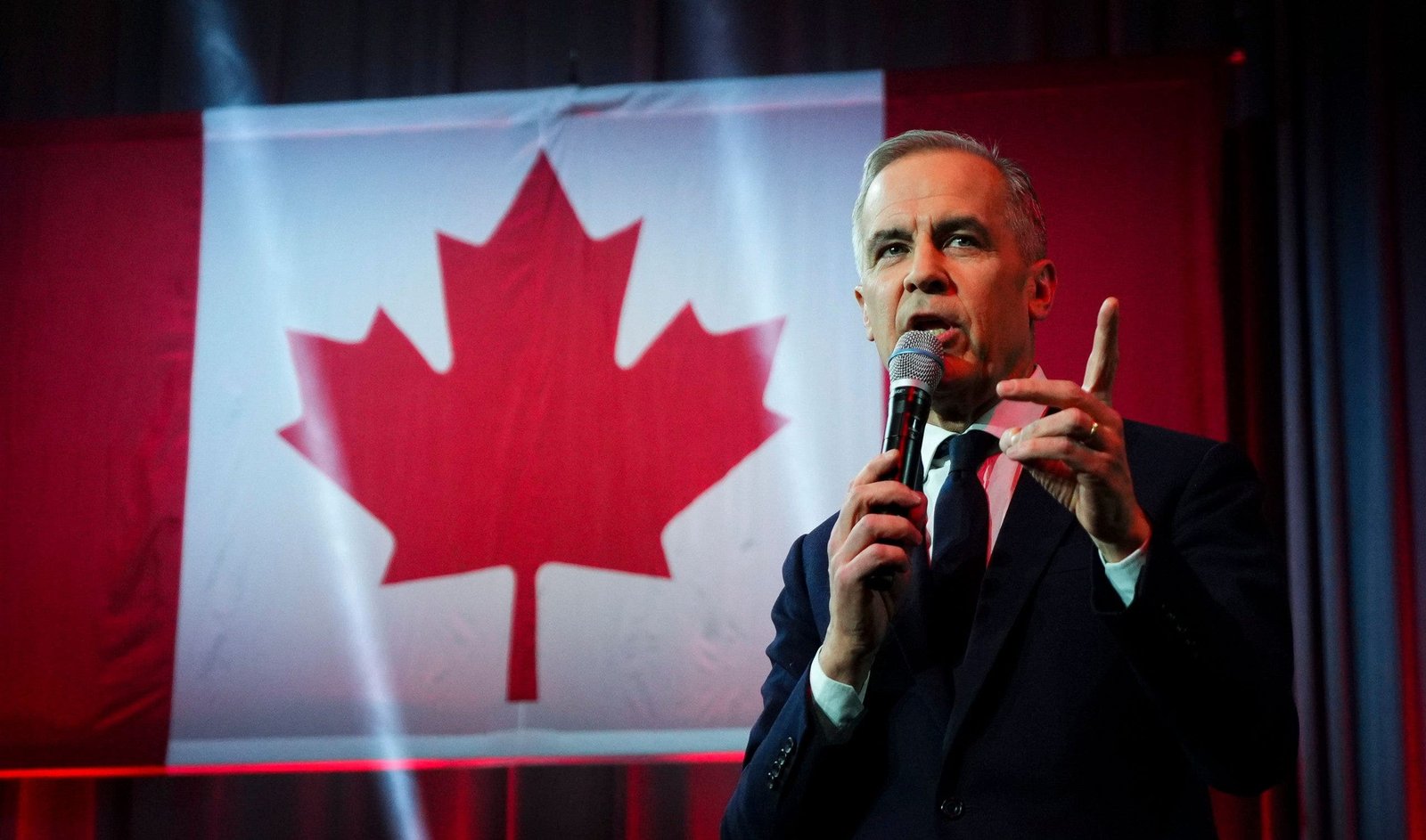
OTTAWA, Canada – Former Central Bank Governor of Canada Mark Carney will become Canada’s next prime minister after winning the Liberal leadership race on Sunday night. Carney told cheering supporters that «Canada will never become part of America in any way, shape or form.»
Carney received 86% of the vote, or 131,764 votes of the 151,899 ones cast from the nearly 400,000 party members who registered to participate in the leadership election.
The new Liberal leader told members that they should be prepared to fight «the most important election of our lives» where the «stakes have never been higher.»
He said, Canada is the «greatest country in the world and now our neighbors want to take us. No way,» said the incoming Canadian prime minister referring to President Donald Trump’s repeated desire for the U.S. to annex Canada as the «51st state.»
TRUMP CRITIC MARK CARNEY POISED TO REPLACE TRUDEAU AS CANADA’S PRIME MINISTER
Canada’s new Prime Minister Mark Carney speaks to supporters in Ottawa, Ontario, Sunday, March 9, 2025.. (Sean Kilpatrick/The Canadian Press via AP)
When Trump announced his tariffs against Canada last month, Carney issued a statement that «Canada will not bow down to a bully. We won’t stand by as illegal U.S. tariffs hurt our workers and their families. As Canadians, we need to face this challenge as one united team.»
In December, outgoing Prime Minister Justin Trudeau reportedly approached Mark Carney to serve as Canadian finance minister, which caused the incumbent, Chrystia Freeland, to leave the Cabinet and publicly release her resignation letter in which she wrote that she and the prime minister had «found [themselves] at odds about the best path forward for Canada.»
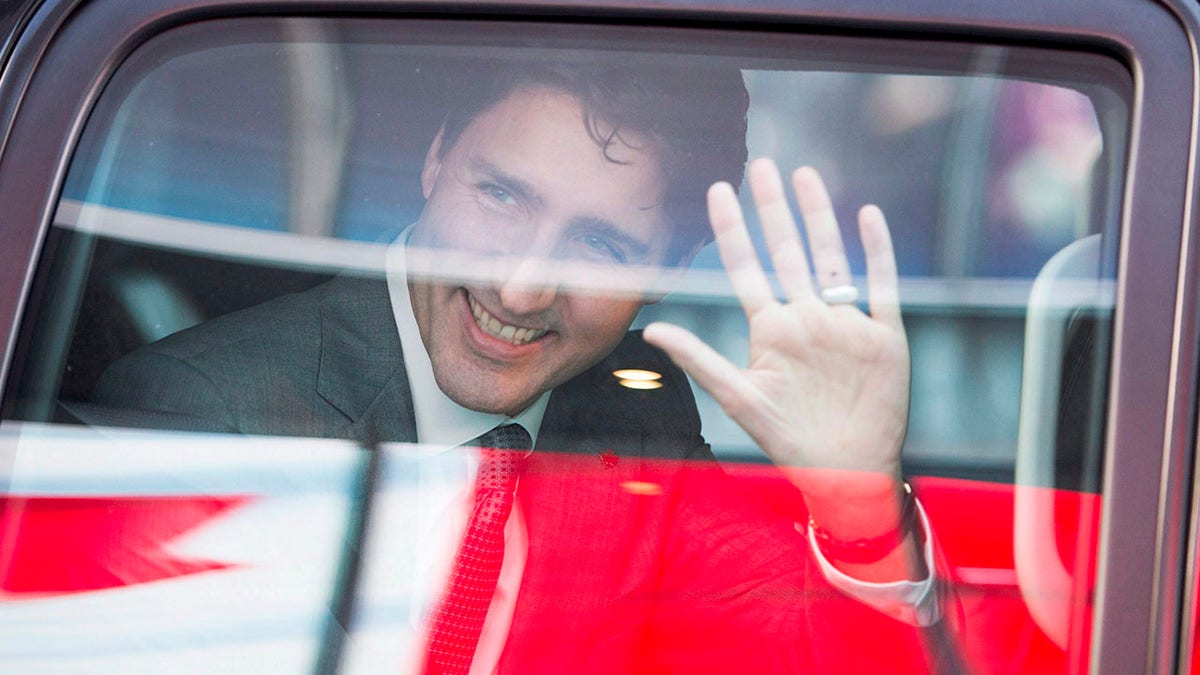
FILE – Prime Minister Justin Trudeau waves as he leaves the offices of Salesforce on Feb. 8, 2018, in San Francisco. (Ryan Remiorz/The Canadian Press via AP, File) (AP)
Less than a month later, Trudeau announced his intention to step down as Liberal leader and prime minister, in which he conceded that if he’s «having to fight internal battles, [he] cannot be the best option» in a general election scheduled to be held no later than Oct. 20.
But opposition parties have vowed to force an earlier national vote through a non-confidence motion in the House of Commons against the Liberal minority government when Parliament is recalled on March 24.
On Saturday, Canada’s Globe and Mail newspaper reported that Carney will likely call a snap election the week before the March 24 resumption of Parliament, with voting day on either April 28 or May 5.
The new Liberal leader is expected to meet with Trudeau on Monday to discuss the transition that will find Carney and a slimmed-down Cabinet sworn into office by Friday.
WHO IS PIERRE POILIEVRE? CANADA’S CONSERVATIVE LEADER SEEKING TO BECOME NEXT PRIME MINISTER AFTER TRUDEAU EXIT

Pierre Poilievre, leader of Canada’s Conservative Party, during the Canada Strong and Free Networking Conference in Ottawa, Ontario, Canada, on Thursday, April 11, 2024. Prime Minister Trudeau has been under fire over the past year due to Canada’s soaring cost of housing, and is trailing badly in the polls to Poilievre, who’s the favorite to win the next election. (David Kawai/Bloomberg via Getty Images)
But regardless of the Liberals having a new leader with some momentum in the polls, Canada’s Conservatives under their leader Pierre Poilievre are ready for a «change election,» said Laura Kurkimaki, who served as deputy national campaign manager for the Conservative Party during the last federal election in 2021.
«We’ve had 10 years of a Liberal government and Canadians are tired of that,» said Kurkimaki, who also served as principal secretary to former Conservative official opposition leader Erin O’Toole whose party won the popular vote but not enough House seats to win the 2021 election.
Furthermore, she said the new Liberal leader would be running on «Trudeau’s record,» and while Carney wasn’t a member of the prime minister’s government, he was appointed last September by the Liberal Party to chair a task force on economic growth for Trudeau.
«The next election will be about who is going to make life more affordable for Canadians,» said Kurkimaki. «What’s going on in the U.S. impacts that, of course, and creates economic uncertainty in Canada.»
CLICK HERE TO GET THE FOX NEWS APP
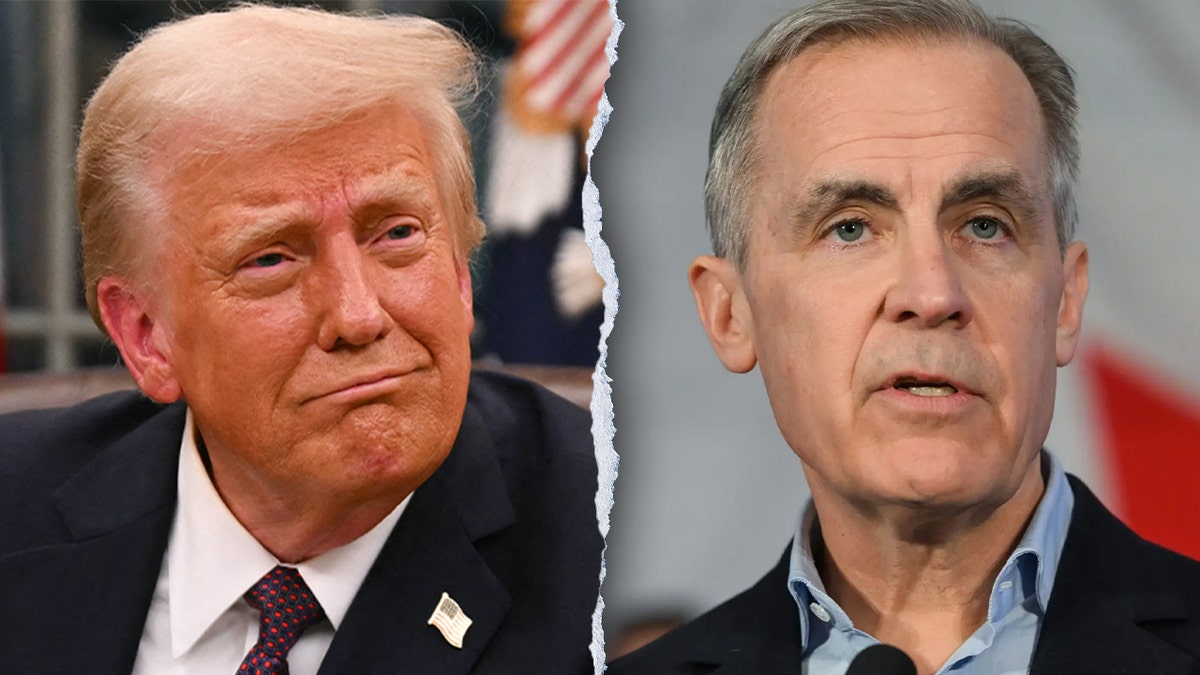
President Trump looks toward likely Trudeau successor Mark Carney of Canada. (Getty Images)
She added that the longer Carney waits to call an election, the Conservatives get more time to launch their attack-ads against him.
During an election, parties face spending limits. But before the writ is dropped to launch the election period, parties can spend as much as they want on advertising, and the Conservatives raised more than double (about $29 million) last year than the Liberals, at about $11 million.
In an interview with The Spectator, President Trump, commenting on the Conservative party leader, said Poilievre’s «biggest problem is he’s not a MAGA guy … He’s not a Trump guy at all.»
The Canadian Conservative leader replied on X, stating: «Mr. President, it is true. I am not MAGA.»
«I am for Canada First. Always,» Poilievre posted. «Canada has always been America’s best friend & ally. But we will NEVER be the 51st state.»
-
POLITICA3 días ago
Tormenta en Bahía Blanca: la ciudad quedó bajo el agua por la lluvia y varias familias fueron evacuadas
-
POLITICA20 horas ago
Documentos oficiales: la Argentina enfrenta 236 demandas fuera del país por más de US$27.000 millones
-
SOCIEDAD3 días ago
Acuerdo con el FMI: Caputo justificó el DNU y dijo que ya están definidos el monto y el programa



